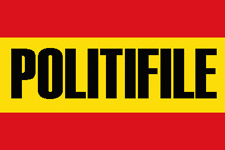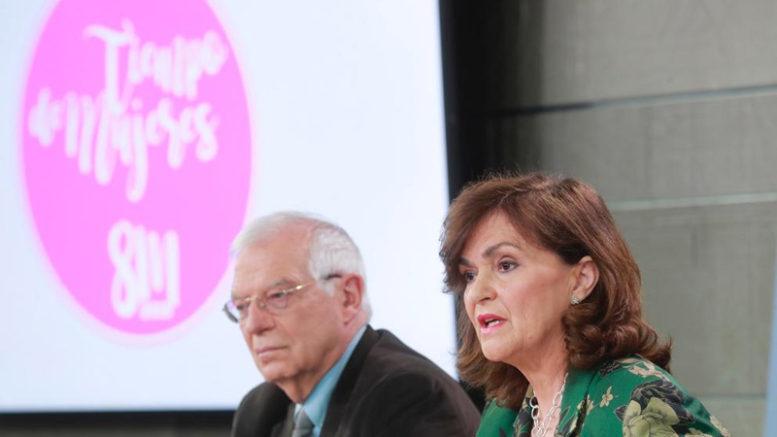The outgoing Socialist party (PSOE) government of President Pedro Sánchez plans to use Spain’s express Decreto Ley process over the coming weeks to approve a series of legislative initiatives previously blocked by the conservative Partido Popular (PP) and centre-right Ciudadanos parties in Congress, according to Spanish press reports.
 The Sánchez government, which will continue run the country following today’s official dissolution of Spain’s 350-member Congress to pave the way for new general elections on 28th April, approved the first of the Decreto Ley initiatives in Friday’s Council of Ministers meeting, including legislation to:
The Sánchez government, which will continue run the country following today’s official dissolution of Spain’s 350-member Congress to pave the way for new general elections on 28th April, approved the first of the Decreto Ley initiatives in Friday’s Council of Ministers meeting, including legislation to:
► Tie the annual rise in residential rentals to inflation and extend the mandatory extension of yearly contracts from the current three years to five years;
► Progressively increase the current paternity leave of six weeks to 16 weeks by 2021, making parental leave on the birth of a couple’s child the same length for men and women;
► Mandate that companies with more than 250 employees create salary indices that cross-reference wages by job description and sex, in order to avoid pay discrimination by gender in the workplace; and,
► Reinstate income tax credits for nonprofessional caregivers in the home that had been revoked by the previous PP government under President Mariano Rajoy.
In the runup to the two-week official campaign prior to the elections, the government’s Council of Ministers is expected to push through additional legislative measures that will increase the amount of unemployment benefits paid to laid-off workers over the age of 52, repeal the most controversial aspects of the sweeping labour “reform” law passed by the PP majority over opposition protests during the Rajoy years and approve legislation that will create 30,000 new jobs in public works and infrastructure construction and maintenance.
 Spain’s Decreto Ley legislative process allows a government to effectively enact legislation immediately, then take the legislation to the floor of Congress without debate or amendment for a vote of simple majority approval or rejection.
Spain’s Decreto Ley legislative process allows a government to effectively enact legislation immediately, then take the legislation to the floor of Congress without debate or amendment for a vote of simple majority approval or rejection.
But, with Congress to be formally dissolved as of publication on Tuesday of notice of the elections in the official Boletín Oficial del Estado (BOE) gazette, passage of pending legislation and other parliamentary processes moves to a 60-member interim Diputación Permanente, comprised of members of all parties represented in the Congress.
A one-seat majority on the current Diputación Permanente is held by the same coalition of opposition parties that brought the PSOE to power last May through a vote of no-confidence ousting PP President Marian Rajoy from power, enabling the Sánchez government to push through several last-minute Decreto Leyes to approve legislation previously introduced by the Socialists that had been stalled on key congressional committees via blocking tactics of both the Partido Popular and Ciudadanos.
Spanish press reports cite government sources who confirm that passage of the laws by decree are part of the Socialists’ electoral strategy, showing voters what kind of laws the public can expect from the PSOE if returned to office — and indicating existing laws that the public can expect a right-wing government to overturn if PP or Ciudadanos come to power following the elections.
Although the PP and Ciudadanos have protested loudly over the PSOE’s use of the Decreto Ley process for electioneering purposes, the practice is not unprecedented. At the end of former President Rajoy’s first term in office, the PP used its control of the Consejo Permanente to approve 121 Decreto Leyes between the dissolution of Congress and the start of the campaign for elections in December 2015.
► Read More in Spanish at El País, La Vanguardia and El Periódico …
► Read More in English at Reuters and El País …
► Click to read more news about Politics in Spain …
Check out more news from Spain about:
► Animal Welfare ► Corruption/Transparency ► Discrimination ► Education ► Children’s Rights ► Environment & Sustainability ► Fair Trade & Development Aid ► Healthcare ► Historical Memory ► Housing & Homelessness ► Human Rights ► Labour & Unemployment ► LGBT ► Peace & War ► Politics ► Poverty ► Refugees & Migration ► Technology & Social Enterprise ► Women’s Rights

All images at ProgressiveSpain.com are the copyright of their respective authors/owners and are reproduced here for non-commercial, journalistic purposes in accordance with Fair Use doctrine. All other content is Copyright © 2015-2019 ProgressiveSpain.com and is licensed under a Creative Commons Attribution-NonCommercial-ShareAlike 4.0 International License.

